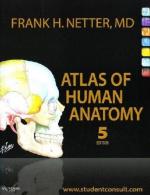|
This section contains 5,034 words (approx. 17 pages at 300 words per page) |

|
One of the great intellectual and spiritual problems throughout human history has been posed by the fact that certain material substances, which are now termed "organic," possess life, while other matter does not. The observation that some things eat, drink, grow, and reproduce for a finite period of time, then cease to do so, prompts fundamental inquiries into the nature of life and death, time and change, meaning and meaninglessness, and also gives rise to speculation about the nature of living substances—specifically as to what it is that sets them apart from those that are dead and inert. Such speculations, until the very recent past, were hardly confined to technical issues of biochemistry and biophysics. Rather, physiology entailed the study of life, humanity, and the universe; as such, it had always a profoundly religious dimension.
Although there have been countless different systems of...
|
This section contains 5,034 words (approx. 17 pages at 300 words per page) |

|




